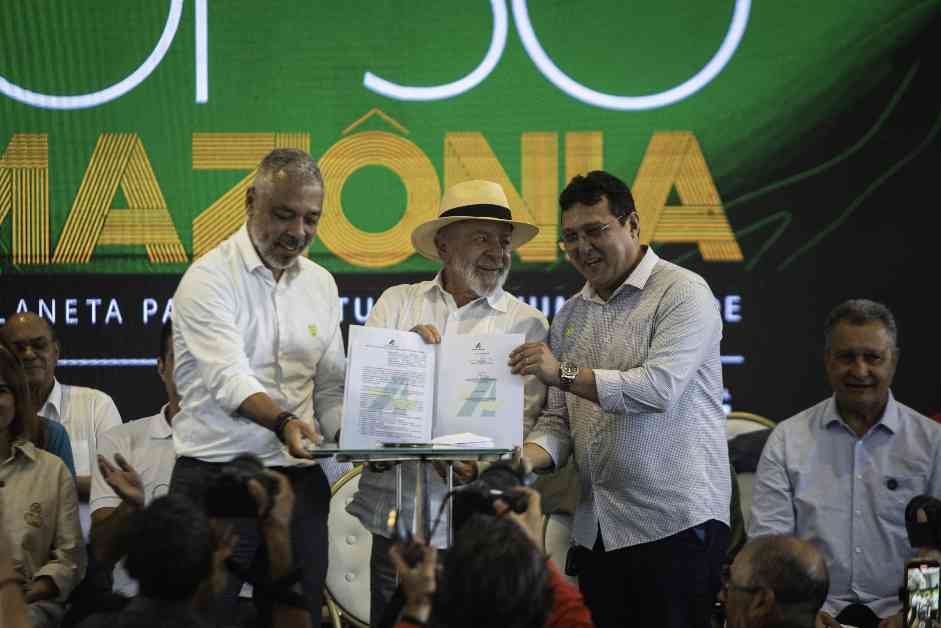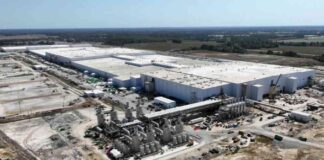President Luiz Inácio Lula da Silva of Brazil recently made headlines by advocating for oil drilling in the Amazon ahead of COP30, a crucial UN climate summit. Despite global efforts to transition away from fossil fuels, Brazil is doubling down on its commitment to extract more climate-warming oil, sparking controversy and concerns among environmentalists.
The backdrop for this debate is the unique setting of COP30 in the Amazon, the world’s largest tropical rainforest. With the last two climate summits being held in major oil-producing countries, there was hope that this year’s event in Brazil would be a turning point away from fossil fuels. However, as extreme heat and flooding plague the region, the Brazilian government’s push for more oil exploration has cast a shadow over the summit.
President Lula, in a speech in Belém, emphasized the continued need for fossil fuels despite the global push for cleaner energy sources. He highlighted that other countries, including the United States, France, England, and neighboring nations, are actively exploiting oil reserves in the Amazon region. Lula defended Brazil’s stance by arguing that the profits from new oil explorations would fund the country’s transition to cleaner energy sources, a claim met with skepticism and criticism from environmentalists.
Challenges and Controversies
Critics of Brazil’s oil expansion plans point to the country’s significant investments in the oil and gas sector, ranking it as the third-largest country in terms of investment in this industry. A report by 350.org revealed that Brazil’s oil production is expected to increase by 36% in the next decade, contradicting the global trend of transitioning away from fossil fuels. This growth is fueled by new exploration projects, raising concerns about Brazil’s commitment to combating climate change.
Environmental groups, such as the Amazon Environmental Research Institute (IPAM) and Saúde e Alegria, have expressed disappointment and skepticism over Brazil’s decision to expand oil drilling in the Amazon. They fear that this move could hinder efforts for a just transition away from fossil fuels and exacerbate environmental degradation in the region.
Environmental Impact and Government Response
The environmental consequences of oil drilling in the Amazon are significant, as highlighted by the denial of an environmental license for an exploratory oil well in the Foz do Amazonas Basin. IBAMA, the Brazilian environmental agency, cited Petrobras’ failure to present a solid impact mitigation and emergency response plan as reasons for rejecting the license. The delicate ecosystem of the Amazon and potential risks to biodiversity were key factors in this decision.
Despite the initial denial, negotiations between government ministries and environmental agencies are underway to secure approval for drilling in the Foz do Amazonas Basin. Political pressure to expedite the licensing process has raised concerns among environmentalists and public servants, who emphasize the need for thorough technical evaluations to assess environmental and social impacts.
The Ministry of Mines and Energy’s efforts to streamline the environmental assessment process have faced opposition from environmental agencies like IBAMA, which have raised concerns about the potential impact of oil exploration on local communities and sensitive ecosystems. The looming decision on granting the license for drilling in the Foz do Amazonas Basin will have far-reaching implications for the region’s environmental integrity and the rights of affected populations.
As Brazil grapples with the dual challenges of climate change and economic development, the debate over oil drilling in the Amazon underscores the complex interplay between environmental conservation, energy production, and sustainable development. The outcome of this contentious issue will not only shape Brazil’s environmental policies but also send a signal to the global community about the country’s commitment to combating climate change and preserving the Amazon rainforest.














